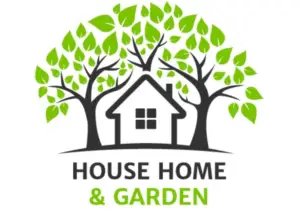Concrete vs Brick House – What is the Better Option?
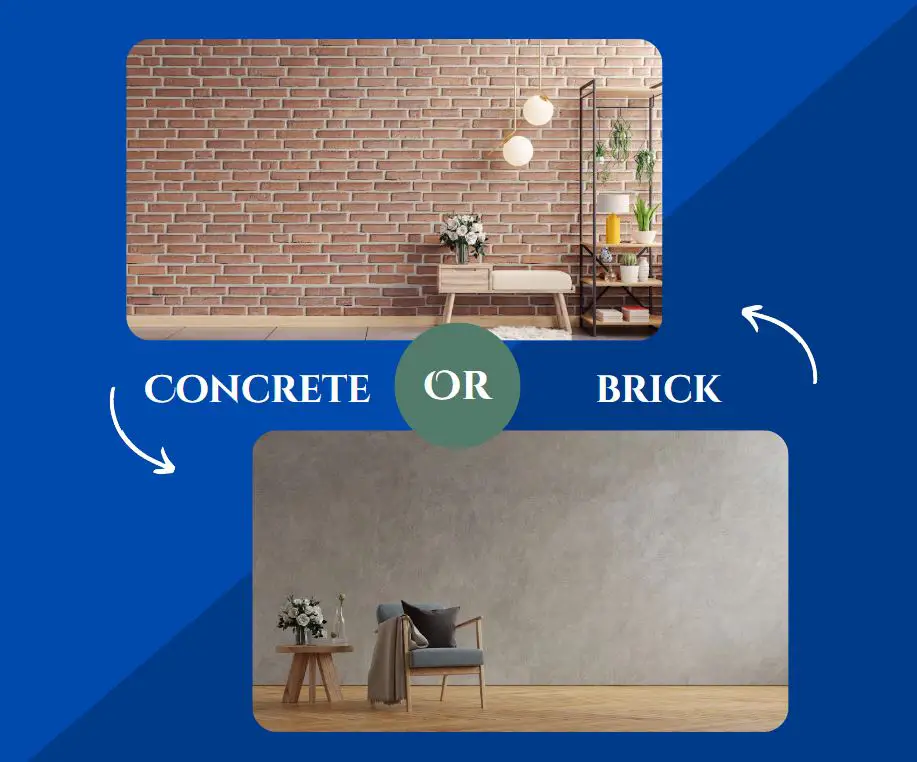
When comparing a concrete vs brick house which one is really the better option?
For your projects, is it enough to pick based on aesthetics? There’s actually a lot to consider, from eco-friendliness to acoustics. We created a short but thorough summary.
Concrete vs Brick House Overview
Concrete is great if you like the modern, minimalist look while brick houses are aesthetically appealing. Both offer durable builds with concrete being more affordable and quicker to build. Keep reading for more information!
Concrete vs Brick House Comparison Table
Concrete House |
Brick House |
Non-traditional structure |
Traditional structure |
Cost-effective – less labour and quicker to build |
Costly – Labour-intensive and time-consuming |
Low maintenance |
Easy maintenance |
Suits modern architecture |
Best for traditional architecture |
Better acoustics |
Moderate soundproof qualities |
Moderate insulation |
Efficient heating and cooling insulation |
Does include chemicals |
Environmentally friendly |
Durable but prone to surface erosion |
Durable |
Moderate lifespan |
Long lifespan |
Less popular aesthetically |
Aesthetically appealing |
Fire-resistant |
Fire-resistant |
Concrete houses with reinforced steel can survive earthquakes |
Can’t be built in earthquake regions |
Ideal for hot and humid climates |
Can be built in both hot and cold climates |
What is a Concrete House?
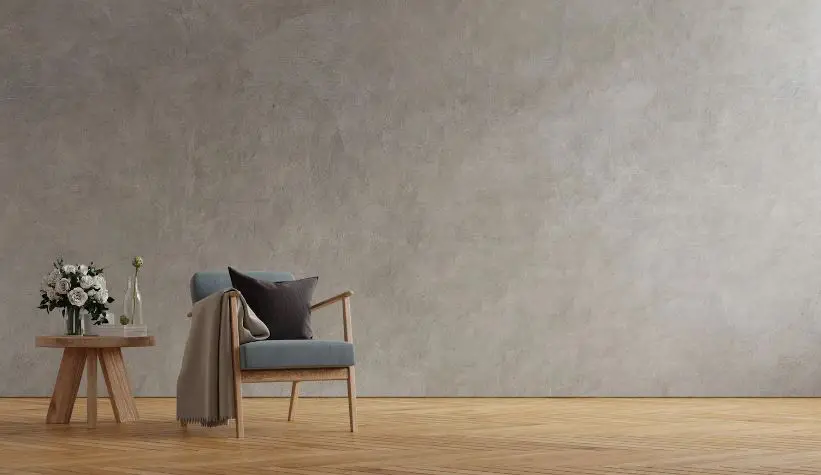
Concrete homes are considered non-traditional structures as they’re not built with brick or stone.
It’s a building constructed with concrete as its main structural element. The home is built with concrete bearing walls that may be covered in other materials or left exposed. The foundation, floors, and even the roof may be made with concrete.
Many people are familiar with the concrete block-type house and most countries have building regulations in place for builders to comply with.
Why Would You Choose Concrete House Over a Brick House – 5 Reasons
1. Cost-Effeciency
For most homeowners building a new house, costs play a big role when putting together a budget. Requiring fewer raw materials to construct concrete slabs, this becomes a cheaper option when building a home. Concrete houses are also less labor intensive and quicker to build.
2. Low Maintenance
Concrete houses are low maintenance making them attractive to homeowners living on a tight budget. A well-built concrete home using top-quality materials is less likely to lose its shape and integrity, reducing maintenance costs. They’re also easier to clean compared to brick homes.
3. Modern Design
If you’re looking for a modern, minimalist architectural design, concrete is the way to go! For example, a residential minimalist concrete house, can have a clear and unique design while being in harmony with its natural surroundings with great perspectives and clean lines.
4. Improved Acoustics
Living in an urban environment can be noisy especially if you live on a busy road. A New Zealand Concrete Masonry Manual describes how concrete is able to absorb sound because of its dense, smooth substrate, making it an ideal building material for reducing noise pollution.
5. Healthier Home
Concrete homes are more resistant to insects, have low volatile organic compounds (VOC) and don’t attract mould or mildew. This type of building material blocks a number of allergens as well as toxins and radon from entering the home making it a healthier alternative to brick houses.
What is a Brick House?
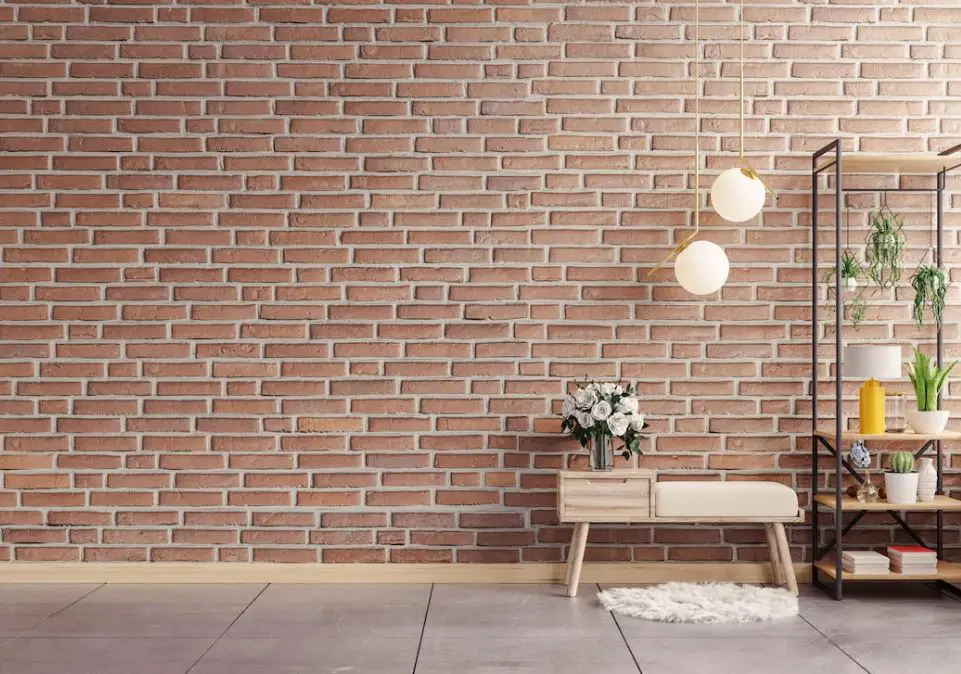
A brick house is a traditional architectural design using fired clay blocks as the main building material.
These days, it’s not unusual for houses to be built with chemically cured construction blocks. Bricks can be joined together with mortar or other adhesives or by interlocking them.
The brickwork, together with mortar, result in a solid and durable structure, making it a popular building material for architects and homeowners alike. Brick is an attractive option while being long-lasting and environmentally friendly.
Why Would You Choose a Brick House Over a Concrete House – 5 Reasons
1. Energy Efficiency
One should consider the impact of energy production and consumption on a global level. Brick houses are known for stabilising indoor temperature, keeping the home cool in summer and warm in winter, and saving on higher energy bills while reducing your carbon footprint.
2. Easy Maintenance
Brick houses require minimal maintenance and are easy to keep clean with pressure hoses. Damaged bricks can be removed and replaced, reducing the need for a complete overall. There’s no need to paint over brickwork, reducing the cost of adding a fresh coat every year.
3. Attractive Aesthetics
If you’re looking for a house that’s aesthetically appealing, a brick house often wins hands down. Bricks come in a variety of colors, shapes and textures, making them a versatile building material. You can build just about any house style with bricks.
4. Environmentally Friendly
Clay is an easily sourced natural material making it an environmentally friendly choice when avoiding building materials that include chemicals and other toxic ingredients.
Being a natural resource, bricks create a warm homely atmosphere. Bricks are recyclable and can be reused on other projects.
5. Longevity
Bricks are durable and if your house is well-built using this type of building material, you can expect your home to have a long lifespan. This type of long-term structure is cost-effective for homeowners who don’t want to keep moving from house to house!
Concrete vs Brick House – Costs
While constructing concrete blocks and bricks may be similar, building with either material is what affects the end cost of using brick or concrete. A concrete house requires less labor and is quicker to build, making it more cost-effective compared to a brick home.
Concrete vs Brick House – Durability
Brick houses are extremely durable being able to withstand most conditions. Concrete blocks are prone to surface erosion but offer more strength compared to bricks. However, if you’re looking for a home that lasts for generations to come, consider going with a brick house for its durability.
Concrete vs Brick House – Insulation and Heating
Concrete has come a long way since first being used as a building material and includes excellent insulation properties. However, it’s not as efficient as brick for heating and insulating the home. Concrete homes do benefit from an additional insulation layer for improved heating and cooling.
Concrete vs Brick House – Looks
If you’re looking for a modern design, then you can’t go wrong with a concrete house with its non-conventional aesthetics. More traditional homeowners find brick houses the most appealing. However, both material types create attractive homes depending on your style.
What Are the Main Problems and Disadvantages With a Concrete House?
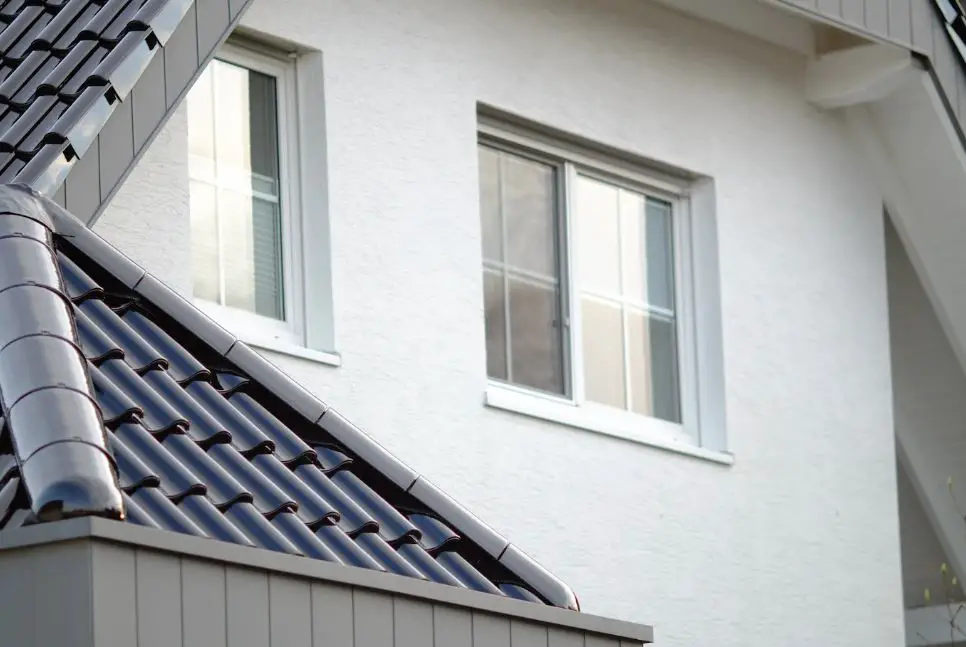
- Color: If you don’t like the stark, grey look of a concrete structure you’ll need to add a layer of stucco so you can paint the external walls in your preferred color.
- Water seepage: Concrete blocks can become exposed to water seepage, increasing the risk of damp and moisture in the home.
- Additional structural strength: Reinforced steel may be needed to improve the structural strength of a concrete house, adding to the cost of building this type of home.
What Are the Main Problems and Disadvantages With Brick House?
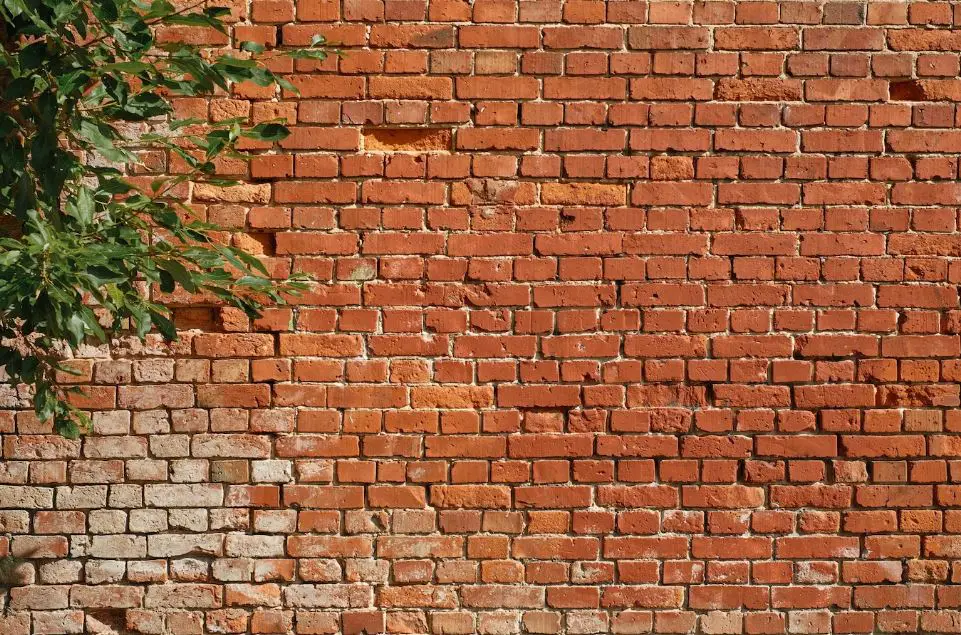
- Brickwork: If your builder is inexperienced in laying bricks, your house could be badly built and the brickwork ends up looking unattractive.
- Time-consuming: Building a brick house takes more time than most other construction materials.
- Prone to earthquakes: Brick houses shouldn’t be built in areas prone to natural disasters such as earthquakes as they break down easily under such conditions.
What are the Different Types of Concrete House?
Houses containing concrete can be built in the following ways:
- Poured concrete: Freshly made concrete is poured into steel bars used to construct the house.
- Concrete blocks: Also known as concrete slabs, these are built up with mortar.
- Cinder blocks: These are built up with mortar with concrete being poured into the voids to give extra strength to the structure.
- Wooden frame: A concrete mixture, known as stucco, is poured over the wooden frame and panelling.
Does a Concrete House Crack and Why?
Cracking in concrete homes is a common concern amoung homeowners. This happens when it’s subjected to tensile strength as well as:
- Drying and temperature shrinkage
- Ground settlement
- Corrosion of steel rebars inside the concrete
How Long Does Concrete Last Before Cracking?
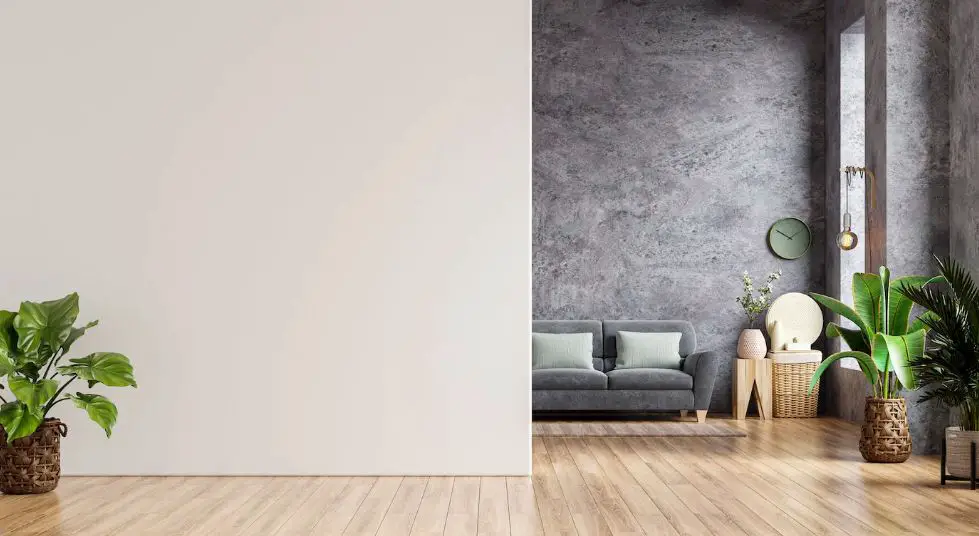
If properly prepared and laid from the start, concrete can last for a long time before cracking. Modifying the concrete mix, installing joints and properly curing the building material will prevent serious cracking problems from surfacing at any point.
Should I Waterproof my Brick House?
There’s no need to waterproof brick houses if the building has been done properly from the beginning. Using water repelling treatments or sealants is unnecessary and a waste of money.
Are Brick Houses Fireproof?
Bricks are fire-resistant, making them one of the most favorable building materials for constructing houses. Clay bricks are fired in ovens at high temperatures and as a result, are fireproof.
Is Brick Hard to Maintain?
Brick is durable and less prone to breaking down over time especially if they’re of high quality. Keeping them clean can be challenging which is why homeowners often resort to using pressure hoses to maintain brick walls, paving and driveways.
Do Bricks Fade Over Time?
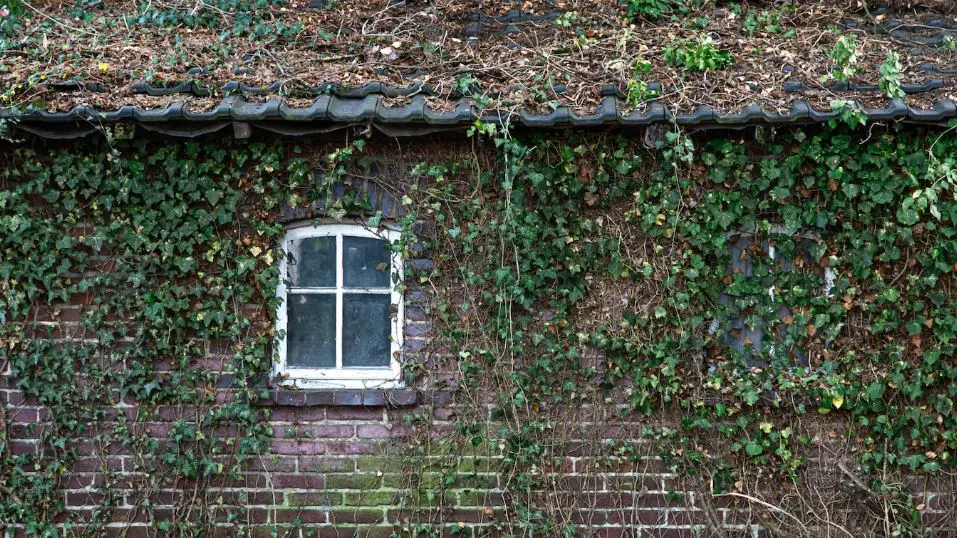
Low-quality bricks do fade over time if exposed to harsh sunlight all day long. To avoid losing natural brick coloring, make sure you build with top-quality bricks which won’t fade from exposure to outside elements.
Which Takes Longer to Build?
Brick houses take longer to build than concrete block houses. Brick laying is time-consuming compared to building with pre-prepared concrete slabs.
Which Climate Suits Each Type?
Concrete houses are best suited for hot and humid weather conditions while brick homes can be designed for a range of climates. Brick homes offer great thermal solutions making them ideal for both cold and hot climate conditions.
Which One Leads to a Warmer House?
The brick house is your best option when looking for a warmer house. While concrete houses can retain some heat, they often need an additional insulation layer to keep your home warm and comfortable during colder months.
Conclusion
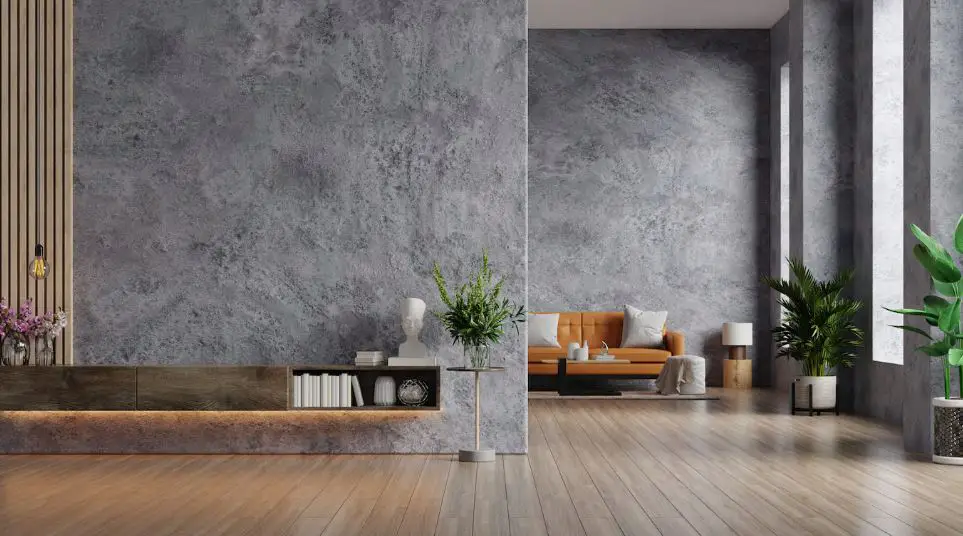
When deciding between a concrete house vs brick house, there are several factors to take into consideration.
Both are built with durable materials but each comes with its own advantages and disadvantages.
Which one will it be for your home lifestyle?
